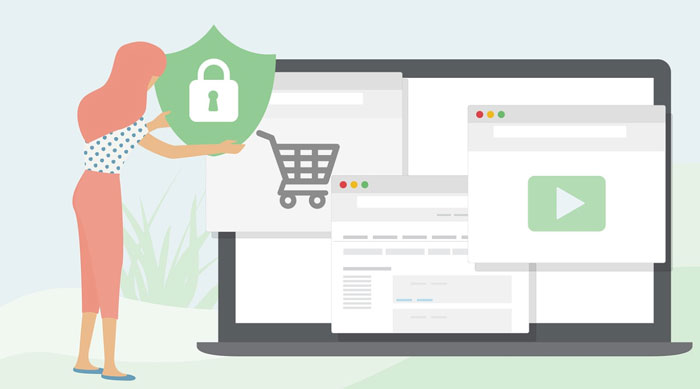In 2020, the total of smartphone users globally is over three billion; and is expected to rise by hundreds of millions in a few years. China, India, and the USA are the highest mobile device users globally, with each of these countries with more than 100 million users.

image from unsplash.com
Most smartphone owners use their device to access the internet and apps, as well as bank accounts via online banking. If your mobile phone is hacked, all your connected accounts and personal information are at risk.
A Financial Times report alleged that an Israeli spy company called the NSO Group developed an exploit on Whatsapp that might inject malware into targeted smartphones and steal their data by making a Whatsapp call, which the user does not even have to pick. The Whatsapp call leaves zero traces and does not appear on the victim’s call log. This is just one of the few ways mobile security is compromised. Other cyber-risks that your free faces include:
Unsafe Wi-Fi Connections
Mobile devices revolutionized how people access the internet. Compared to back in the day when you had to log in from a stationary PC, mobile devices allow you to access the internet from anywhere in the world as long as there is internet reception. There is a tendency among mobile users to log in to free Wi-Fi networks in coffee shops or airport lounges. Unsecured Wi-Fi connections are an invitation for hackers to infiltrate your device. All it takes is a weak link and in this case, your smartphone.
Hackers lurk in unsecured Wi-Fi connections and make you vulnerable to man-in-the-middle attacks, or worse, you might log into rogue hotspots. For instance, if the free Wi-Fi in your local coffee shop reads coffeeanddonuts Wi-Fi, a hacker may set up a hotspot that reads coffeeanddonuts2. This hotspot similarity lures people into logging into the fake network, thinking it is part of the coffee shop network. The hackers then proceed to steal confidential data from those who log into their network.
Handling Sessions Improperly
For mobile device transactions and to provide ease of access, most apps use tokens, which allow their users to perform various actions without having to authenticate identities multiple times for each action. Tokens are likened to passwords and are generated by the apps for identifying and validating devices.
A secure app generates a new token every time you try to access the app or the session. Improper handling of sessions happens when an app inadvertently shares your session tokens with malicious actors, which allows them to impersonate the legitimate user. This happens when a session remains open after the user has left the website or app. For example, if you log into your social media accounts via your smartphone and fail to log out, a cyber-criminal might log in and do a lot of harm and log into your other connected accounts.
Broken Cryptography
Broken cryptography occurs when developers utilize weak algorithms for app encryption or fail to use algorithms that are more robust. In the first instance, developers may opt to use known algorithms despite being aware of their vulnerabilities so that they can save time spent creating code, and to speed up the app development process.
This allows hackers to exploit the known vulnerabilities to gain access to devices. The second instance involves developers using secure algorithms but leaving back doors open that make their effectiveness wanting. The hacker may not manage to crack a password, but a flaw in the code allows the hacker to modify app functions such as text messaging.
How to Protect your Mobile Device
To avoid hackers from infiltrating your devices, you can use several ways to secure your mobile such as:

image from pixabay.com
1. Use of VPNs
A Virtual Private Network (VPN) allows users to browse anonymously by hiding your location and your IP address from hackers. It creates a secret tunnel between your device and the Internet, ensuring that traffic is encrypted and secured.
2. Tightening app Permissions
Tightening app permissions means that you restrict what the apps can do and access. These permissions range from access to phone data such as media files and contacts or hardware like microphones and cameras. Giving the app permission allows it to use the phone features, and denying it access prevents the app from doing so.
3. Strong Passwords
Most people tend to take the password issue lightly. Strong passwords ensure that hackers cannot access your device when you leave it lying around, or it is lost or stolen. Use a unique password for all your apps so that if your device is hacked, hackers cannot access all apps.
4. Use Multi-factor Authentication
Use your password as well as multi-factor authentication such as biometric authentication like fingerprint or retina scans. You can also use a code sent to another trusted device to log in, although the biometric scan is more common in the latest mobile gadget versions.
5. Use a Password Manager
Most people use the same password across all their accounts and apps. Using different passwords seems like a feat because you have to remember all the passwords. A password manager does all the hard work of storing the passwords, so you do not have to. All you need is remember the master password for the manager.
6. Mobile Application Management
Mobile application management (MAM) software manages and controls access to mobile apps. The MAMs direct their users to secure their app stores and give administrators granular control for app management.
Conclusion
Mobile devices are the weakest link between safety and online security. Most people do not understand how their online activities affect their security. Installing apps that are not verified by app stores or logging into free Wi-Fi networks is a one-way malicious code that can infiltrate your devices.
You should take everything you see with a pinch of salt. Even if it is an email from your family or close friends, it might just end up being a scam if you are not careful.


Comment Policy
Your words are your own, so be nice and helpful if you can. Please, only use your REAL NAME, not your business name or keywords. Using business name or keywords instead of your real name will lead to the comment being deleted. Anonymous commenting is not allowed either. Limit the amount of links submitted in your comment. We accept clean XHTML in comments, but don't overdo it please. You can wrap code in [lang-name][/lang-name] tags.